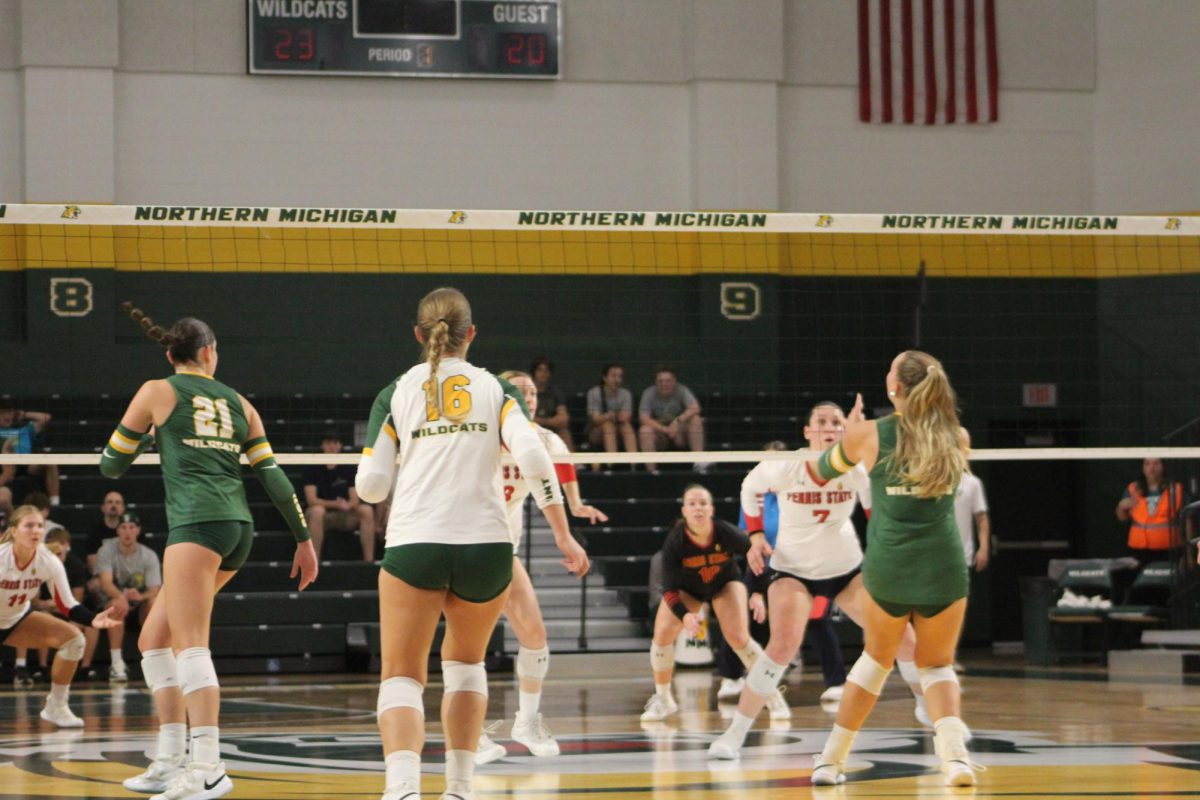Possibly the most emotional moment in sports happens at the Olympic ceremony.
There, the gold medalist stands on the highest podium, with his or her country’s flag draped behind, and the national anthem rings throughout the stadium.
This scene is the lifelong dream of Harry Lester, a United States Olympic Education Center (USOEC) Greco-Roman wrestler.
“It’s what I work for. I don’t want to go out [of the USOEC] without being able to go to the Olympics,” Lester said. “It is what every wrestler dreams of.”
Lester, 24, is the most decorated wrestler at the USOEC. In the 66-kg weight class, he has won a Pan-American gold, two world bronze medals and a Senior National title in Greco-Roman.
He has become a world-renown wrestler and said his days of winning are far from over.
“I think by far I am the best wrestler in my weight class in the United States,” he said. “I also think I am the best wrestler in my weight class in the world.”
Even with his past success he is not yet qualified to wrestle in Beijing this summer. He must first win the Olympic Trials on June 12 in Las Vegas, and only one wrestler from each weight class will continue to the Olympics.
The coaches of the U.S. National Team see Lester’s success and his chances of making the team and are starting to believe in him and his dream.
“He has the heart. He has the skill. He is athletic and he has talent,” said Ike Anderson, the developmental coach for Greco-Roman USA Wrestling. “We all know Harry has potential to be on the podium come August.”
While the path to the podium is in Lester’s foresights, the entire road leading up to now has been a long one.
No hard feelings
In his senior year of high school at Cuyahoga Falls Valley Christian Academy in Akron, Ohio, Lester met Northern’s USOEC coaches and was interested in the program. However, he took a full scholarship to wrestle collegiately for Iowa State University.
ISU’s head coach at the time was Bobby Douglas, the first African American inducted in the Wrestling Hall of Fame. Douglas was a role model of Lester’s and his reason for going there.
ISU has produced eight national championships and the prestigious Cael Sanderson but this wasn’t enough for Lester.
While at ISU, he was falling out of love with the collegiate style of wrestling. Lester said he was bored with it and his mind was clouded by his Olympic dreams.
“It was just the whole feeling,” Lester said. “When you’re really serious with a sport and you put hours and hours into it each day you have to have some type of love or some type of connection, and while I was at Iowa State I just lost that connection for wrestling.”
Lester stayed with ISU for his red-shirt year, but it became apparent his heart wasn’t with the team. The desire for earning Olympic Gold soon outweighed the chance of an NCAA championship for Lester.
“His focus was on wrestling, but not collegiate wrestling. I could see that,” Douglas said. “I think he was struggling. I’m not totally blind. I think it was a tough decision for him to make.”
In 2002 Lester told his coach he was transferring to NMU to train in Greco-Roman wrestling and pursue the Olympics. This decision was one of the hardest for Lester because he didn’t want to letdown his coach.
“It was difficult to leave Bobby. I could definitely see the disappointment in his face,” Lester said. “But once Bobby saw I had found my path, I think he was alright with it in his head and in his heart.”
Not having Lester in the lineup left a void in the weight class which took Douglas two years to fill.
“It crippled our wrestling program,” Douglas said. “It was difficult for me to let him go but I always try and do what’s in the best interest of the athlete and I felt that it was in his best interest to pursue his dream.”
‘Dirty gold’
In November of 2002, Lester moved to Northern to train for the Olympics under the eyes of head coach Ivan Ivanov and assistant coach Jim Gruenwald. Lester said the two coaches made the transition of styles from collegiate to Greco-Roman simple.
“A good wrestler will find a way to adjust in his style. Especially when his heart is there,” Ivanov said. “And that is what happened with Harry. He realized a bigger part of his heart was here.”
It didn’t take long for Lester’s talent to show. After being with the USOEC for just one year he started beating the top- ranked wrestlers and received national recognition. Both Ivanov and Gruenwald have competed in the Olympics and know what it takes to be at that level. They could see the potential in Lester and believed in him.
“It was a system that was easy to believe in,” Lester said. “[Ivanov and Gruenwald] started to put things in my head like, ‘You can be the No. 1 guy. You can win Olympic medals. You can win world medals.’ And I finally just started believing in that.”
Lester went on to win two world bronze medals-one at the University Games in 2005 and one at the World Games in 2006. These victories made him the most prized wrestler ever to come out of the USOEC.
Over the next two years Lester used these successes as motivation to keep his eyes on the path toward Olympic greatness as he trained for it.
“I’m tired of that dirty gold color. I want the real gold,” Lester said. “All I can think about is Beijing, and not making it would be a major disappointment.”
With only months before the Olympics, Lester’s dream of standing on the podium donning the red, white and blue listening to the “Star Spangled Banner” is in his mind more than ever.























